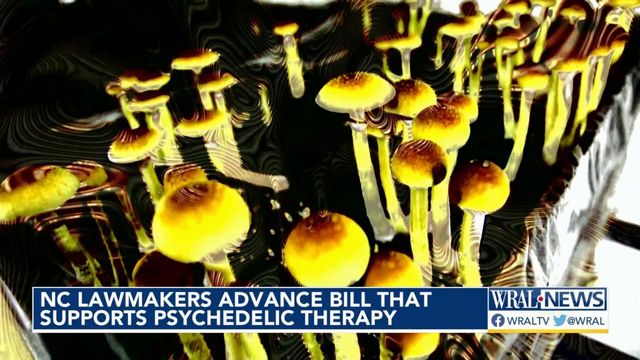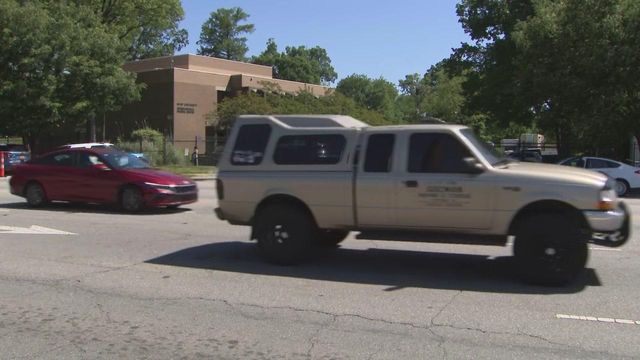NC House committee advances bill that supports psychedelic-assisted therapy
MDMA, more commonly known as ecstasy, and psilocybin – or “magic mushrooms” – are often known associated with the party atmosphere.
However, a growing interest in their potential medicinal benefits has led to the bipartisan support of state lawmakers.
The Breakthrough Therapies Research/Advisory Act passed through a House committee Tuesday with little discussion. The lawmakers who did speak up offered their support of the bill.
The Multidisciplinary Association for Psychedelic Studies, or MAPS, found that 88% of its first Phase 3 participants with severe PTSD had a clinically significant reduction in PTSD diagnostic scores after undergoing MDMA-assisted therapy.
“The results of early studies are very promising,” Dr. Rob McClure said. “Psychedelics may reduce the symptoms of a variety of psychiatric disorders.”
McClure is an associate professor of clinical psychiatry at the University of North Carolina at Chapel Hill. He is working to get approval from the U.S. Food and Drug Administration to start a psilocybin trial. He said there is still a lot to learn about the effects of psychedelics.
“The psychedelic needs to be identified, the efficacy in a certain disorder needs to be identified, and of course, what the course of treatment will be,” he said.
House Bill 727 would support two grants, totaling $5.4 million, to research into the therapeutic benefits of psilocybin and MDMA.
“Funds shall be used to award two competitive [Breakthrough Therapies Research] Grants to recipients for eligible research projects or studies …The funds shall be used by the recipient to pay for costs associated with an eligible research project or study, which is intended to last three years,” according to the bill.
The bill states MDMA research should focus on treatment for post-traumatic stress disorder, specifically for veterans, first responders, frontline healthcare workers, domestic violence and sexual assault survivors. Meanwhile, psilocybin research should focus on treating “anxiety disorder, depressive disorder, or both.”
An advisory board to oversee the grant application and research process would also be established.
Veteran Jonathan Lubecky said MDMA-assisted therapy saved his life. He struggled with Post-Traumatic Stress Disorder and tried to take his own life five times in a span of eight years.
“Cannabis was effective … but it didn’t fix the root problem,” Lubecky said. “It helped alleviate the symptoms … but the second I stopped using cannabis, everything came back.”
After being given dozens of pills from doctors and using cannabis, Lubecky took part in a MAPS study in 2014.
“The medication allows you to trust the people around you,” he said. “It makes sure your body doesn’t betray you by having panic attacks and other things.”
Lubecky is currently providing humanitarian assistance within artillery range in Ukraine, another war-torn country. He said this wouldn’t have been possible without MDMA-assisted therapy.
“If I can heal the way I have, so much so that I can return to a combat zone … this provides hope for every single people who’s watching this who has PTSD,” he said. “I know the five times I tried to end my life, it’s because I didn’t believe a day like this would ever exist.”











